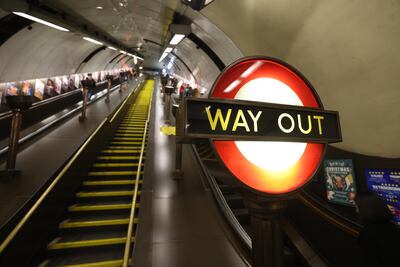Coronavirus vaccine booster shots could offer up to 75 per cent protection against mild disease from the new Omicron variant, a new study has found.
The data, released by the UK Health Security Agency on Friday, offers the first data on the protection against Omicron outside of lab studies.
In an analysis of 581 people with confirmed Omicron, two doses of AstraZeneca and Pfizer-BioNTech vaccines provided “much lower” levels of protection against symptomatic infection with this new variant, than against the earlier Delta variant.
However, when boosted with a dose of Pfizer vaccine, there was around 70 per cent protection against symptomatic Omicron infection for people who initially received AstraZeneca, and around 75 per cent protection for those who had received Pfizer.
Dr Mary Ramsay, head of immunisation at the UKHSA, said: “These early estimates should be treated with caution but they indicate that a few months after the second jab there is a greater risk of catching the Omicron variant compared to Delta strain.
“The data suggest this risk is significantly reduced following a booster vaccine, so I urge everyone to take up their booster when eligible.”
On Friday, a further 58,194 Covid-19 cases were announced by the UK's Department of Health, the highest reported daily figure in almost a year.
The last time a higher daily figure was reported was on January 9, when 59,937 cases were recorded.
Officials said a further 120 people had died within 28 days of testing positive for Covid-19.
Covid in the UK – in pictures
Michael Gove, Secretary of State for Housing, Communities and Local Government, on Friday held a meeting of Cobra – the UK's civil contingencies committee that handles matters of national emergency or major disruption – with the first ministers of the UK's devolved nations.
They discussed Covid-19 data and co-ordination on the response.
Following the meeting, Mr Gove said the UK faces a “deeply concerning situation”, given the fast growth the Omicron variant.
“We know the Omicron variant is doubling every two to three days in England, and possibly even faster in Scotland,” Mr Gove said.
“We know that 30 per cent of reported cases in London are the Omicron variant and of course we only identified Omicron in this country a fortnight ago.”
Mr Gove is himself isolating after coming into contact with Australia's Deputy prime minister Barnaby Joyce, who has tested positive for coronavirus, when Mr Joyce was in the UK earlier this week.
Earlier this week, Prime Minister Boris Johnson introduced tough new “Plan B” measures in England to stop the spread of Omicron. The guidance requires people to wear masks in many indoor settings and work from home where possible.

New data revealed the effect of the work from home guidance had on London's public transport network this week.
Transport for London, the local government body responsible for most of the transport network in London, said demand for Tube and bus services up to 10am each day this week has been lower than the same period a week earlier, apart from for buses on Monday.
Morning Tube use was down 5 per cent on Thursday and 3 per cent on Friday, while bus use decreased 2 per cent on Thursday and 1 per cent on Friday.
A TfL spokesman said: “The government’s decision to require people to work from home from Monday will naturally result in a drop in TfL’s ridership.
“We continue to assess what impact this announcement will have on overall ridership levels, and crucially our operating income which relies heavily on fares revenue.”
Demand for Tube and bus travel up to 10am is at around 52 per cent and 73 per cent of pre-pandemic levels, respectively.












